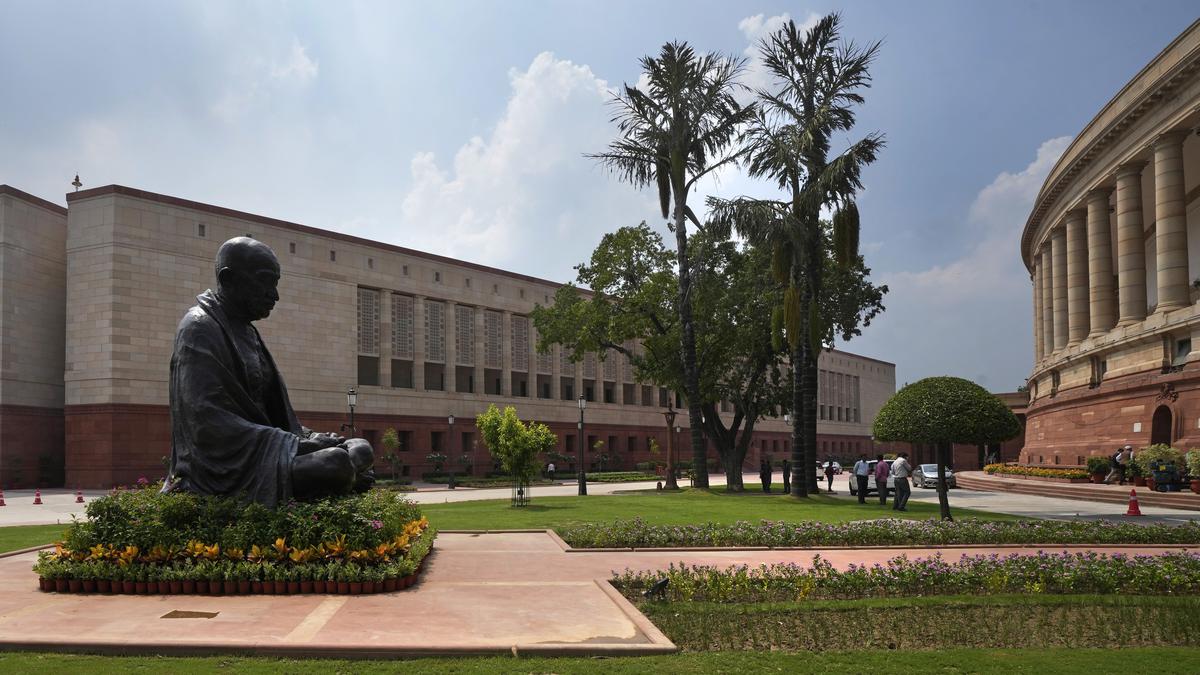
Understanding the significance of the Parliament ‘special session’ | Explained Premium
The Hindu
The Hindu explains what the constitution says about special sessions of Parliament and analyses how and when are they convened.
The story so far: A ‘special’ five-day session of Parliament began on Monday, with the government last week Wednesday finally putting an end to prolonged suspense by unveiling the legislative agenda.
After announcing the session around two weeks ago, the Centre’s denial to spell out the agenda fuelled speculations in political circles speculating about simultaneous elections or a name change of the country to Bharat. The announcement without an agenda triggered a war of words, with the Opposition criticising the government for a lack of transparency and “distorting” parliamentary conventions, while the Centre accused Opposition leaders of “politicising” the functioning of Parliament.
Although there is no specific provision in the Constitution that deals with special sessions, a few such sessions have been convened in the past. The most recent instance was in June 2017 when the PM Narendra Modi-led government held a special session to roll out the Goods and Services Tax (GST).
Also Read | No Question Hour, private members business during September 18-22 special session of Parliament
Article 85 of the Constitution deals with prorogation and dissolution of Parliament. While there is no fixed schedule, the provisions of the Article specify that the President must summon the Houses to meet at least once within six months. “The President shall from time to time summon each House of Parliament to meet at such time and place as he thinks fit, but six months shall not intervene between its last sitting in one session and the date appointed for its first sitting in the next session,” the Article reads.
The provision has its roots in the Government of India Act, 1935, according to which not more than 12 months should elapse between two sessions. When the draft Article 69 (which corresponds to Article 85) was taken into consideration by the Constituent Assembly in 1949, there was a proposal to change the intervening duration between the two sessions of Parliament to three months to ensure that the Houses get more time to look into problems faced by the public.
One of the members, Professor K.T. Shah, suggested that Parliament should sit throughout the year with breaks. He said the draft article was based on conditions during the British times when legislative work wasn’t hectic and the House was summoned only to obtain financial sanction. “It is all the more important because large issues of policy, large matters, not only of voting funds but determining the country’s future growth, that is, to shape the future of this country for years to come, have to be very scantily treated; and the Parliament’s response to it, the discussion in Parliament about it, becomes, to say the least, perfunctory. Time is an important element in allowing a proper consideration. I am, therefore, suggesting that between any two sessions of Parliament in a year not more than three months should elapse,” he said.













